In a world where political tensions and the climate are in a neck-and-neck race to be first to pass tipping points with devastating global consequences, I escaped to nature's tranquility to continue my long-distance walk along the Dutch coastline.
For several hours, I only saw beauty. Walcheren, one of the islands of Zeeland, welcomed the dawn of a new season, with bursts of color and signs of life emerging from the cold and muddy ground. I got used to seeing only the first flowers in Ottawa by mid-April, so I felt happy to see snowdrops coloring the brown leaves in white and green hues.

Meanwhile, global sea surface temperatures hit a new all-time modern record high this weekend. I have been active on climate change for about two decades, and I find this graph to be one of the scariest ones I have seen. These are the data for the past 41 years. Note the yellow line going awol since spring last year, and then notice how it made a head-start as the red line last month, going boldly further up and up. I wish all weather presenters would speak about this graph instead of tomorrow's weather forecast.
Not far from the field of snowdrops, I pass a house with a warm, south-facing wall. Some daffodils were lucky to be planted here by the house owner, making them the first I have seen this year with their beautiful design in bright yellow. I stop, admire, and photograph them before continuing my walk to the west.
The thought of those early flowers in Zeeland, two months ahead of Ottawa, stays with me for a while. If you look on a world map, a Mercator projection where Greenland is far larger than it is, and draw a line from Ottawa to the east, you hit Europe at Bordeaux. That is far south of Zeeland, so you would expect such a southern city to be pleasantly warm by now. A large part of the answer to why our climate in northern Europe is so mild has to do with the AMOC, the Atlantic meridional overturning circulation, that brings warm waters from the Caribbean directly to our doorstep on the beaches of Zeeland.
Dutch scientists just published a paper that adds more weight to other recent studies, including the OECD Climate Tipping Points Report, showing early warning signs for a tipping point. Although this is the most sophisticated -and probably most expensive- study done so far, there is still a lot we don't know. But that doesn't mean that the main conclusions aren’t profoundly worrying.
The study concludes that the AMOC does have a tipping point, that the Atlantic is moving towards this tipping point, and that climate models overestimate the stability of the AMOC. When will it reach its tipping point? Unfortunately, nobody can say, but even more unfortunate is that it's not excluded (nor a given) that this may happen in our lifetimes. Europe would get so cold that our agriculture system as we know it would collapse, and the monsoon system would be severely disrupted; in short, our planet would be unrecognizably different from the pleasant place it still is today.
I continued walking west towards that unusually hot Atlantic Ocean, focusing on the horizon. Soon, the perfect symmetry of the empty road ahead made me forget about our global challenges. Spring brings not only flowers but also happily singing birds. I heard a European Robin and many Great Tits, which we kindly address as "koolmeesje." I heard woodpeckers, but these are often difficult to spot in the Netherlands, unlike the many I have seen in Canada.
Several times, I listened to the distinct sound of a Common Buzzard. This landscape is a paradise for these birds of prey. They love to live on the edge of a forest, close to grassland or farmlands. And just like we lived our pre-pandemic lives by moving between our homes and workplaces, buzzards live in the woods where they are devoted parents to their offspring and get their meals on the table by hunting in the nearby fields.
I stopped in a cafe and sat down with a cappuccino beside a fireplace. I warmed up in this pleasant, quiet place with the Beatles playing in the background. After a busy week and a long walk, I caught up with the news on my smartphone. It seems I was not the only one warming up; we all are. January 2024 is now officially the warmest ever measured, joining the ranks of a long list of previous months that collectively made last year the warmest ever measured. I still remember some ten years ago or so that I sent out tweets about climate-related disasters, but like many in the mainstream media, I found the frequency is nowadays too high.
Climate change and Donald Trump have a strange similarity: you get to the point that however bad the latest event has been, you accept it as your daily dose of bad news that you have learned to live with. So, with all due respect to the victims of recent disasters like the wildfires in Chili and the floods in California, I can't write an article about each event. Nor will I write here about the highest air temperature ever recorded in Europe in January (but since you want to know: on January 25, Gavarda in Spain recorded 30,7 Celsius, 87 Fahrenheit).
Walking back, I saw the beauty around me: wild deer and free-roaming muscular and stocky Polish Koniks. I passed a beautiful manor on an estate, and I captured a bit further the reflection of the naked branches of a winter tree in a round pond.
My feet got muddy, and at several places, I had to navigate around huge pools; my worn-out, ventilating summer Camino hiking shoes were not the best choice of footgear for today.
I made more photos than I can share with you. I loved the spot I found with many peacocks and snowdrops at the top of an old dike silhouetted against tall trees. And there were signs of new life everywhere: moss on tree trunks, crocuses, and other plants developing right on the path I walked in a forest, making every step a negotiation between speed and care for new life. So I strolled, admired nature's resilience after winter, and briefly forgot about the world's news.
I write this newsletter because I believe we can do better on this beautiful but fragile planet if we work together.
You can subscribe for free to receive this newsletter in your email, but please consider supporting this initiative by paying for a subscription. The paying subscribers make it possible for those who can't afford it to read for free.
Finding Beauty in Kindness: A Reflection on Compassion
When I opened the curtains this morning, I enjoyed the sight of the sun casting its warm glow on the sleepy streets of my village. Silhouetted against the vibrant backdrop of the dawn sky, unremarkable rooftops that I had never given particular attention to suddenly became essential in framing the daybreak's warmth and soft light.
Notes:
https://www.inkl.com/glance/news/world-not-prepared-for-climate-disasters-after-warmest-ever-january?section=personalized
https://www.realclimate.org/index.php/archives/2024/02/new-study-suggests-the-atlantic-overturning-circulation-amoc-is-on-tipping-course/


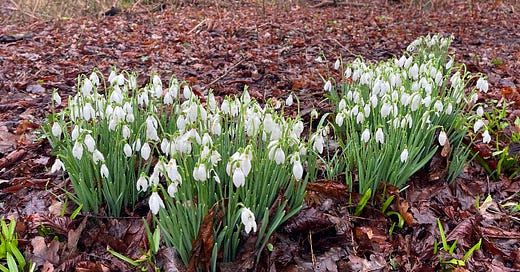



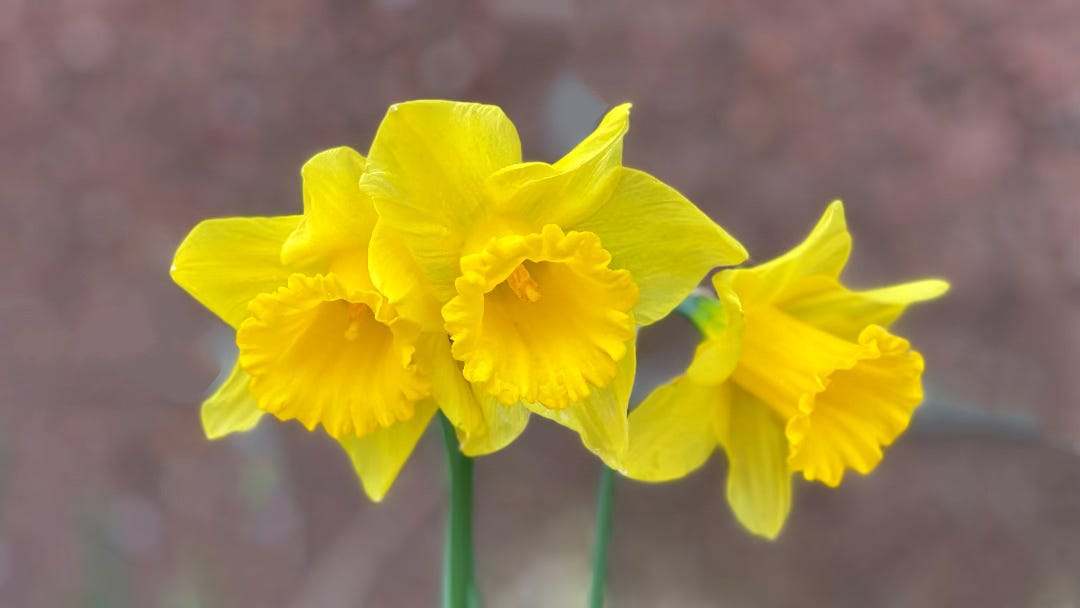



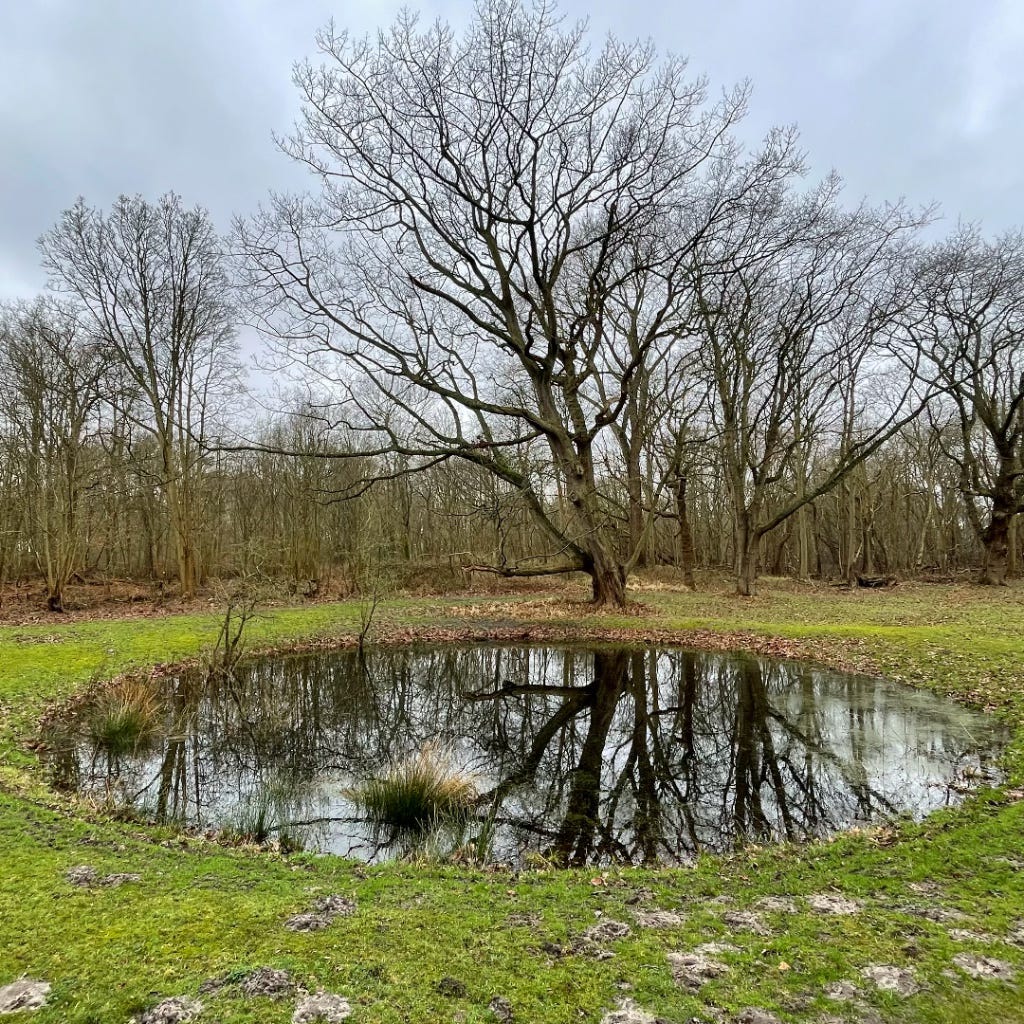
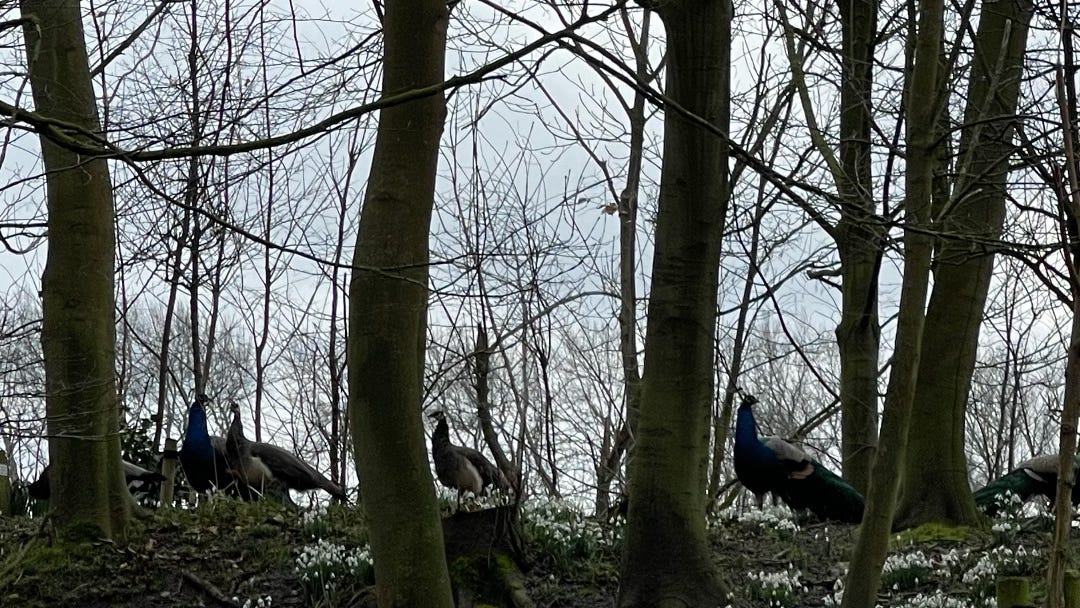
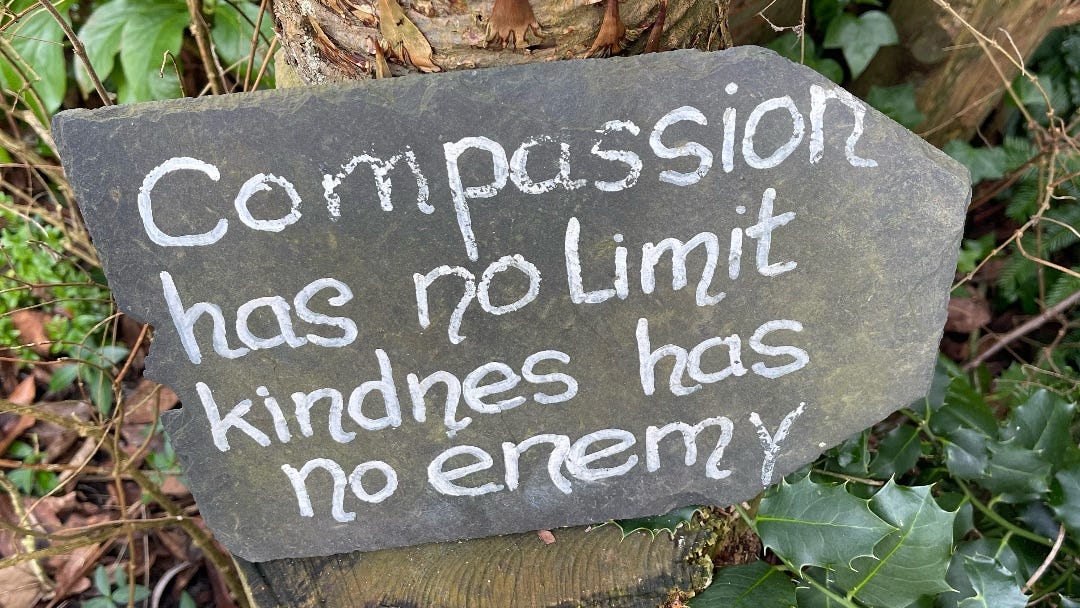

"And there were signs of new life everywhere: moss on tree trunks, crocuses, and other plants developing right on the path I walked in a forest, making every step a negotiation between speed and care for new life. So I strolled, admired nature's resilience after winter, and briefly forgot about the world's news."
These words of yours are what I shall focus on today. Thank you.
What would we do without you? As always grateful for the wonderful places and things you share with us and also for keeping us informed about the world we live in and the environment we must protect. We all can / should do something to make a difference. VOTE for saving our planet!